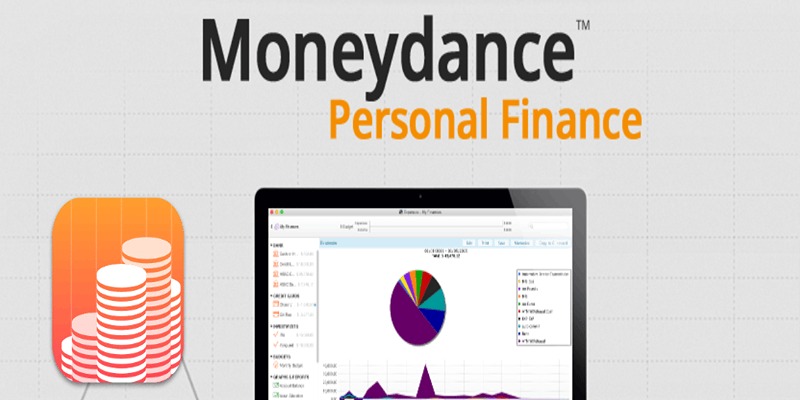What The Debt Ceiling Agreement Means For The IRS
Oct 22, 2023 By Triston Martin
Advertisement
Are you a taxpayer concerned about what the recent debt ceiling agreement could mean for you? You're not alone! This deal could have far-reaching implications for Americans trying to stay on top of their finances and the Internal Revenue Service (IRS).
In this blog post, we'll look at how it might affect your filing process, address potential changes, and explore what you should consider when preparing your taxes this season.
Read on to get informed about the newly signed deal and its impact on US citizens and taxpayers.
What is the debt ceiling agreement, and how it affects the IRS

The debt ceiling agreement is between Congress and the White House to raise the federal government’s borrowing limit. This allows the US Treasury Department to borrow more money to pay for government activities, like Social Security benefits, military salaries, and other programs that require funding.
The increased borrowing limit also ensures the IRS has sufficient resources to properly administer our nation’s tax laws.
When Congress and the White House have agreed to a debt ceiling agreement, it typically includes provisions for the IRS to receive additional funding.
This allows the agency to hire more staff, upgrade its technology systems, and enhance compliance services to help taxpayers pay their fair share of taxes.
In addition, increased funding helps the IRS provide more taxpayer assistance services, such as online tools, telephone hotlines, and other resources that help taxpayers understand their rights and obligations.
The debt ceiling agreement can also provide additional funds to strengthen the IRS’s efforts in combating fraud and identity theft.
By increasing appropriations for enforcement activities, the IRS can better protect taxpayers from criminals who attempt to illegally obtain refunds.
Advantages and disadvantages of the deal for taxpayers

The debt ceiling agreement reached between the White House and Congress in August 2011 has advantages and disadvantages for taxpayers.
On the one hand, the deal will help reduce the federal budget deficit and save taxpayers billions of dollars in interest payments over time.
On the other hand, it also includes cuts to several government programs—including some that directly benefit taxpayers—and new taxes that could increase the taxes paid by individuals and businesses.
The deal also impacts the IRS in several ways. It includes provisions that will reduce spending on IRS operations, including a 10% cut to its budget for fiscal year 2012. This could lead to fewer audits and other enforcement activities and reduced customer service.
However, the agreement also requires the IRS to implement several new tax reforms, including Alternative Minimum Tax (AMT) changes and increased enforcement of offshore banking regulations.
How will the agreement affect tax refunds, filing deadlines, withholding, etc.?
Under the new agreement, the IRS can still issue refunds regardless of what happens with the debt ceiling. Anyone expecting a refund should be fine with their filing deadlines or withholding information.
The IRS has assured taxpayers that they will continue to operate normally, and as such, all tax filing deadlines and other payment obligations will remain in effect. However, any new legislation that changes tax rates or other related matters may create uncertainty.
The IRS is committed to providing taxpayers with the resources to understand and comply with their tax obligations. The agency encourages people to stay informed by signing up for email alerts and following them on social media.
They also have an online resource center where taxpayers can find answers to frequently asked questions about the debt ceiling agreement and other tax issues.
The agency also works to ensure the agreement does not negatively affect taxpayers. The new agreement does not suspend or delay current laws governing taxes, deductions, credits, exemptions, and other related matters. This means these rules will remain in effect for this year’s filing season.
What strategies can taxpayers use to prepare for changes the new agreement brings?
The Debt Ceiling Agreement is expected to bring several changes to the IRS and how it taxes individuals. To prepare for these changes, taxpayers should consider various strategies that can help them manage their tax liabilities.
One option is to create a budget that accurately reflects income and expenses toto better understand where the money goes each month.
This will help taxpayers create a cushion of savings that can be used to cover potential tax liabilities and also plan for any unexpected expenses.
Additionally, taxpayers should review their withholdings to ensure they pay the appropriate amount during the year.
Taxpayers may also want to investigate available deductions and credits, which can reduce their overall tax liability.
For instance, deductions are available for those who have student loan payments or are paying tuition for a college course. Additionally, tax credits may be available to taxpayers based on their income and filing status.
Finally, taxpayers should consider using professional tax software or a qualified tax preparer to ensure they take full advantage of all available deductions and credits.
Additionally, professional services can help taxpayers understand their filing requirements under the new agreement and provide valuable assistance in managing their taxes throughout the year.
FAQS
1. What is the debt ceiling agreement?
The debt ceiling agreement, also known as the "Bipartisan Budget Act of 2019," was passed by Congress and signed into law in early August 2019. The agreement raises the federal debt limit and sets government spending levels for two years through 203.
It also provides additional funding to various programs, including $1 billion for a targeted IRS enforcement push.
2. What does the debt ceiling agreement mean for the IRS?
The new law gives the IRS additional resources to improve taxpayer services, strengthen its enforcement efforts, and provide better regulatory guidance.
This could include expanding their audit capability, increasing fraud prevention activities, improving access to taxpayer assistance centers, streamlining processes for filing taxes electronically, and strengthening information securityThethe agreements.
Also includes $320 million for the IRS to upgrade its information technology systems.
3. What other changes have been made to the IRS?
In addition to the debt ceiling agreement, several other measures have been taken by Congress and signed into law that affect the Internal Revenue Service.
These include a new fee on paid tax preparers, increased penalties for filing incorrect returns, and the creation of a new whistleblower program. These measures aim to improve the IRS's operations' efficiency, accuracy, and fairness.
Conclusion
This article has helped you understand what the debt ceiling agreement means for the IRS. This new agreement will have many implications on tax filing, debt collection, and other related matters.
It is important to stay up-to-date with the latest news and developments to make informed financial decisions. The IRS will enforce any changes made by the debt ceiling agreement, so it is important to be aware of any modifications that may affect you.
If you have any questions or concerns, do not hesitate to contact an experienced tax professional for more information.
Advertisement
-
 Investment Nov 30, 2024
Investment Nov 30, 2024Finding the Currency Basket: A Simple Guide to Its Role and Relevance in Global Finance
Discover what a currency basket is, how it stabilizes exchange rates, and examples of its application in global finance, from SDRs to the U.S. Dollar Index.
-
 Mortgages Feb 19, 2024
Mortgages Feb 19, 2024FHA loan credit score requirements: FHA for low-credit buyers
Find out how an FHA loan could be the ideal solution for low-credit buyers to buy a home! We provide details on the credit score requirements, the advantages of this lending option, and other useful tips.
-
 Investment Dec 18, 2023
Investment Dec 18, 2023Renters Insurance in California
Learn why renters insurance is essential for your security and peace of mind if you're living in a rental property in California. Here are the key points to consider when selecting an insurance policy that meets your needs.
-
 Know-how Sep 18, 2024
Know-how Sep 18, 2024Moneydance Review: Unpacking Its Key Benefits and Features
Discover how Moneydance simplifies personal finance management with its user-friendly interface, comprehensive features, and strong security options.
